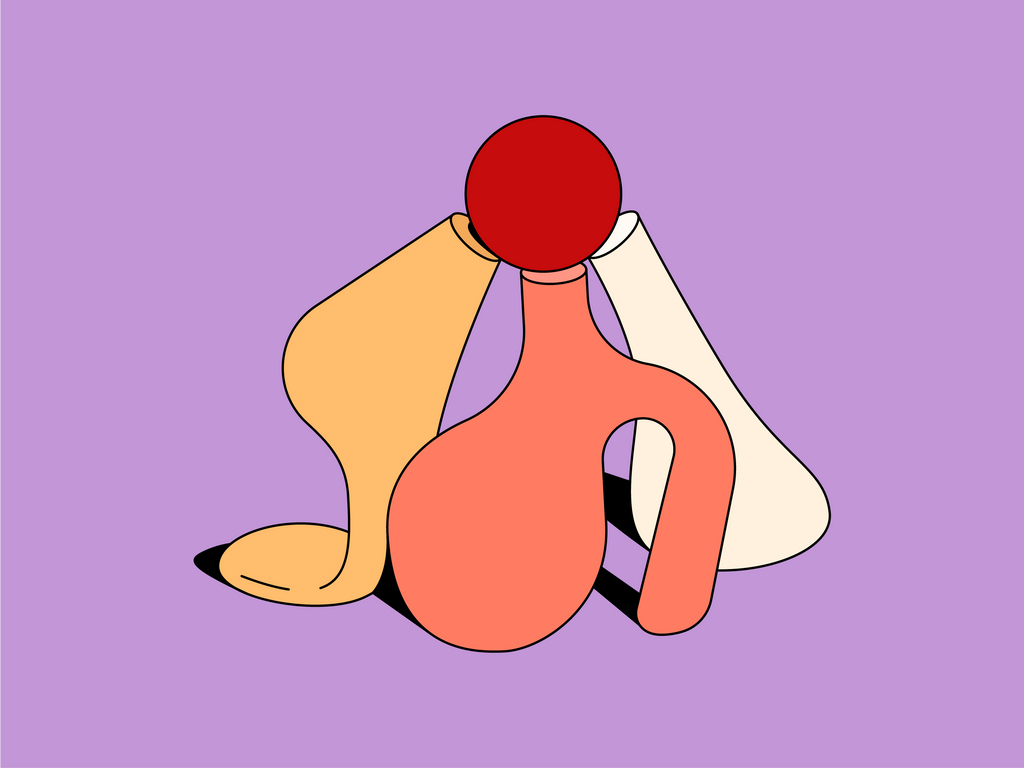How My Disability Informed My Period Care Journey
- Share this article Copy to clipboard

Periods can be different when you’re disabled—more difficult, more painful, more visible. Certainly, when my health turned down a Completely Bonkers highway, I went from a mostly silent, private suffering to having to enlist help from my family to keep myself afloat.
My period care journey has seen a lot of evolution over the fifteen years I’ve been menstruating. I refused help at the beginning. My mum stood in the bathroom giving me instructions while I inserted my first tampon, but after that I suffered alone. As my body gave up on me in my early 20s, I learned that needing help while you’re on your period is okay, natural, and should be normalized!
In high school I refused to take any cramp management, believing pain relief would make me weak. Like everyone I knew, I used disposable cotton pads and tampons. I was aware menstrual cups existed, but reviews warned of difficult insertion and removal. Also, at the time, menstrual cups did not come in “teen size.”
Those years, periods were miserable. My delicate, dry skin got friction burn from pads, and using tampons for too long irritated my Super Hymen. I experienced discomfort and pain without fail, the whole time believing I had no other options.
Then, on Christmas in 2015, I received my first pair of Thinx, and it revolutionized my period experience. I haven’t touched a disposable cotton pad or tampon ever since.
Thinx changed my life in a good way… except there was a definite learning curve. I never realized how much blood my body actually produced. I eventually learned that on heavy flow days I needed to arrive for 8-hour work shifts with an extra pair of Thinx to change into on break. Before that, I had to call my mum or a close friend to bring a second pair of Thinx to my job (This was before they launched their Super absorbency.)
The second prominent issue? Cleaning.
With fatigue and executive dysfunction, the hardest aspect of using Thinx is the labor. Any number of problems, depending on the individual, might arise. For me, walking downstairs to the washer was painful. Sensory issues occasionally made it difficult to handle blood-soaked fabric. And of course, executive dysfunction sometimes prevented me from doing any of it, at all.
How I got through managing my period might be shocking for some, although it really shouldn’t be. My family and a few close friends all pitched in to take care of my needs, including fetching my Thinx, taking them down to the washer, and sorting them out of the clean laundry before tossing everything into the dryer.
Not all support circles would be willing to do this, and I’m lucky I have one that is. My agender male-assigned sibling does an equal share of work without complaining or calling it “gross”. He also goes to the grocery store behind our house to get me snacks, which is… the best.
Over the years I discovered other options to make menstruation even easier, starting with a free menstrual cup by Rebel Kate, who had a campaign to get reusable, eco-friendly hygiene products into the hands of menstruators, including those who couldn’t afford them. A couple years later I switched to a Luna cup, which I use in tandem with Thinx. Reusable cotton pads that snap onto underwear are also an option if you’ve used all your Thinx and forget how long your period lasts—something I have no experience with, promise.
Supporting disabled people during our periods is only the top of the Period Care Pyramid. Communities need to embrace trans men and nonbinary people—such as myself!—who menstruate, provide resources to homeless people, incorporate period health needs into conversations about reproductive rights, including supporting birth control that limits or eliminates menstruation, and allow menstruating people to take the day off once in a while.
We’ve all heard about how menstruation needs to be destigmatized, but more than that, periods need to be accepted. That includes social circles coming together to support the needs of menstruators—rather than just leaving it at not saying “ew” when someone mentions their “time of the month.” It’s vital to treat menstruators as beloved community members, considering there is no community without menstruation.
Without my family’s help, managing my period health would be much, much harder. There’s nothing shameful in asking for support. What resources might you need? Help us kick off a convo in the comments.
Jem Zero is a disabled transmasc writer/artist creating work about zir faulty meatsack & brainjuice. Further eccentric nonsense can be found at @jem_zero (twitter), and @jemzero (instagram).


